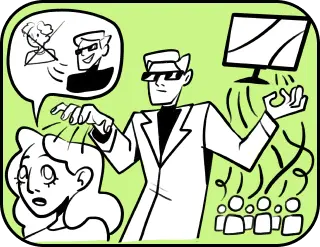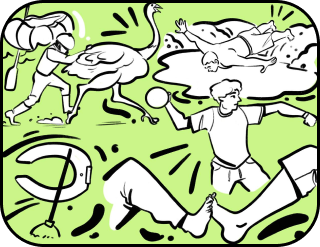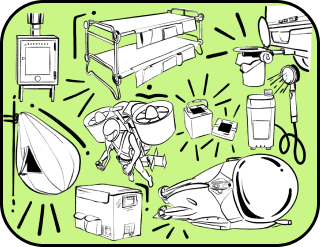How to get your life forecast: astrology vs. futurology
Whether you believe it or not, according to the premise of this task, two friends decided to meet for a coffee to discuss an upcoming job transition and create the most favorable life forecast.
Whether you believe it or not, but under the same premise, one of the friends noticed a newspaper kiosk across from the cafe where they were drinking coffee. One of them bought a newspaper, which had a horoscope on the last page. Sitting down at the table, she began to read aloud everything the stars advised.
Whether you believe it or not, under the same premise, the other friend was a futurist.
Whether you believe it or not, we have prepared practical and technological solutions that helped two friends discover their life predictions. Now they will help you too.
Can one rely on such a peculiar invention as a horoscope to make a life plan? Once upon a time, there were two brothers. Each received a prediction. The first was destined to die in a specific year, and the second was foretold power and wealth at a certain time. The second brother relaxed and led a dissolute life: drinking, debauchery, disregarding others’ wishes and interests. His heart hardened. «Well,» he reasoned, «everything will be great in the future, I just need to wait.»
The first brother was very upset by the prediction and began to think more sensibly: «If I’m not meant to live long in this world, I’ll at least do some good deeds.» He devoted himself to monastic asceticism, helping others and doing good deeds.
On the day both predictions were supposed to come true, the brothers walked together. The idle reveler found a coin, and the pious brother stumbled, fell, and got hurt. Their destinies formally came true, but in a much-diminished way.
The point is that a person can shape their future at any moment. A prophecy indicates only the most probable, but not inevitable, development of events.
Can we say the brothers’ horoscopes came true? Both yes and no. The horoscope in this Indian myth did something far more important: it changed one brother’s way of life for the better and revealed the greedy nature in the other.
Therefore, a horoscope cannot precisely predict what awaits you and where you will go. Millions of people share your zodiac sign, and it is unlikely that the star prediction will come true for all. Also, a horoscope should not be interpreted literally – stars speak as ambiguously as we act.
Claims that a horoscope comes true can be described as the Pygmalion effect: when we are completely sure and constantly think about what awaits us, we unconsciously attract all the circumstances that help the prophecy come true.
Astrology has existed for over 1,000 years, but it has not become a science; it is not taught in schools and universities. From the academic community’s perspective, astrology is a pseudoscience that once aided the development of observational astronomy, mathematics, meteorology, and other fields, but nothing more. Yet, many still believe it to be a science, thinking that the position of planets and stars influences fate.
As astrology has not provided any convincing evidence that it can predict a person’s actions or personality, scientists have conducted several experiments. One such study, conducted in 2009 by Indian astrophysicist Jayant Narlikar, presented «natal» charts of schoolchildren, including birth data necessary for compiling horoscopes, to 27 leading astrologers and an entire astrological institute. Among the schoolchildren were both geniuses and children with developmental delays. The astrologers were asked to predict, based on the natal charts, who among the children was a prodigy and who was not. None of them could predict or even guess the required outcomes with a satisfactory rate of coincidence.
Another popular experiment demonstrating the inconsistency of horoscopes was conducted by psychologist Bertram Forer in the late 1940s. He gave students a personality test, but instead of results, handed out the same text to all with vague descriptions of one of the zodiac signs’ characteristics. He then asked the students to rate how well the results described their personality. The students rated the accuracy at over 80%: each student found themselves beautiful, with slight insecurity, and each expected a joyous event in the future.
These and other experiments allowed scientists to assert that a zodiac sign provides less than half the information about personality and fate. Tabloid horoscopes, published in newspapers and on websites, and broadcast on television, focus only on zodiac signs. Logically, less than 50% information is empty chatter, appearing out of nowhere. The thirst for profit has driven “astrology specialists” to the point where some people are being offered a personal astrologer precisely to regularly receive comprehensive information about themselves. A personal astrologer in such cases promises to compile a natal chart (natalis — birth), considering the full birth date, time of birth, and even place of birth.
In 1949, a statistical study by astrologer Michel Gauquelin and psychologist Françoise Gauquelin, his wife, made a sensation. Gathering data on several thousand Europeans and compiling a natal chart for each, they concluded that astrological indicators influence professional abilities. Those born under the sign of Mars become athletes and soldiers, Saturn patronizes scientists and doctors, the Moon — writers, Jupiter — politicians, journalists, and actors.
The results were published in a 23-volume work. However, subsequent verification of the study’s results showed that Gauquelin was biased and often tailored data to fit his theory, trying to present the desired as reality. Later studies completely disproved his theory, deeming it an «insult to the intelligence of any person in the scientific world.»
In the 1960s, Gauquelin himself rejected such views, proposed reforming astrology, abandoning most of its postulates, and replaced everything with statistics.
Over time, the horoscope became a convenient invention to shift responsibility for a poorly lived day or someone’s unbearable character. One often hears: «He’s a Scorpio, that explains his unbearable nature,» «They, Leos, are such egocentrics,» «I immediately knew she was a Virgo because I was bored with her,» «You’re a typical Taurus, so sluggish.»
Once, a debate arose between psychologist Mark Hamilton and Finnish astrologer Ruslan Susi about whether a person’s character could be described based on their zodiac sign. The psychologist believed it was possible, while the astrologer was skeptical.
The truth is, the Virgo might have seemed boring because the interlocutor didn’t interest her, the Taurus was lazy because he was saving energy for something really important to him, the Leo’s independence was mistakenly taken for egocentrism, and the Scorpio’s grip was a defensive reaction to interacting with strangers. All the results of the debate, which turned into a study, were relative and hardly applicable in practice.
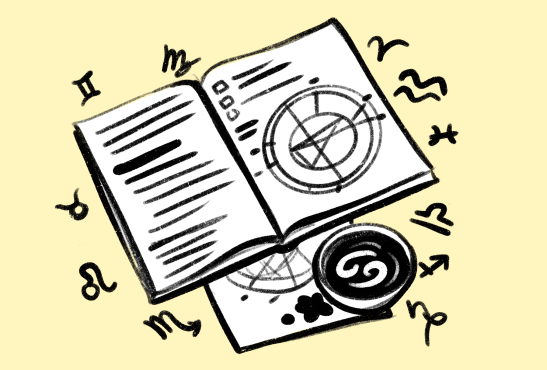
In the modern world, many things can «predict» the future, and people have successfully learned to use them. The question: «Okay, Google, what’s in store for me?» will always be relevant.
In human history, there have been many famous prophets who predicted many historical events. But is there a technical way to predict the future for a specific person?
After World War II, in the second half of the 20th century, there was an economic and population boom, with rapid technological advancements. Life was changing quickly, becoming more complex, and new, previously unknown problems were emerging. Politicians and managers desperately needed recommendations on which directions to move in and what to monitor in scientific, technical, social, and political spheres.
It was reasonable to turn to the scientific community for recommendations, whose authority was significantly enhanced by space flights, atomic energy, early computers, and so on. That’s when scientists and inventors came up with the idea to develop methods to organize this stream of scientific consciousness and create an objective methodology for forecasting: they invented certain methods of calculations, gave these procedures beautiful names, and called it all – futurology.
It should be noted that the goal of futurology is not to predict specific or single events but to present our probable or alternative future as a whole.
Futurology is a relatively new field of study, first proposed by science fiction writer H.G. Wells, who called for the creation of «Departments and Professors of Foresight» during a BBC broadcast in 1932.
The term “futurology” was first used during World War II by political scientist Ossip Flechtheim to describe a new area of knowledge based on probabilistic and systematic analysis of the future.
During the Cold War, Herman Kahn, Olaf Helmer, and other experts at the RAND Corporation laid the methodological foundations for futurology using scenario techniques, game theory, and systems analysis to calculate military strategy. Using these foundations, Alvin Toffler at the New School for Social Research in New York in 1966 began teaching the first course dedicated to futurology.
Futurists can advise companies, government agencies, and various organizations on possible scenarios and outcomes based on these super-trends. Futurists or futurologists use a wide range of methodologies to study and forecast possible, probable, and predetermined events:
«Possible» events refer to what might happen;
«Probable» events refer to what is likely to happen under conditions subject to human control;
Another method often used in futurology is the «backcasting» method, which involves the question of what changes in the present are required for alternative future scenarios. This involves analyzing many possible points of divergence from the timeline since forecasting will construct several scenarios.
Thus, it can be said that besides horoscopes, there are more scientific things to rely on when making a favorable life forecast. Or you can just live your life.
Perhaps, let’s have enough technology for today.
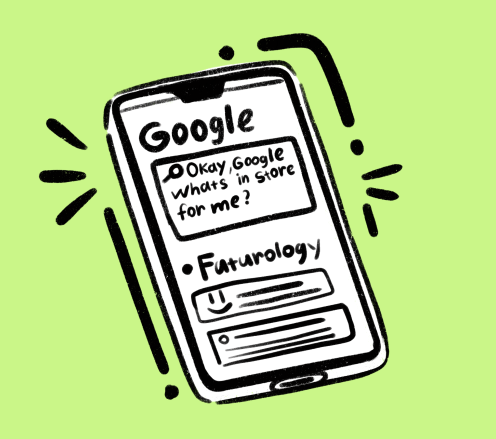
The Roman Empire has fallen. But we have scientific content that doesn’t survive, it triumphs!
Thank you!


